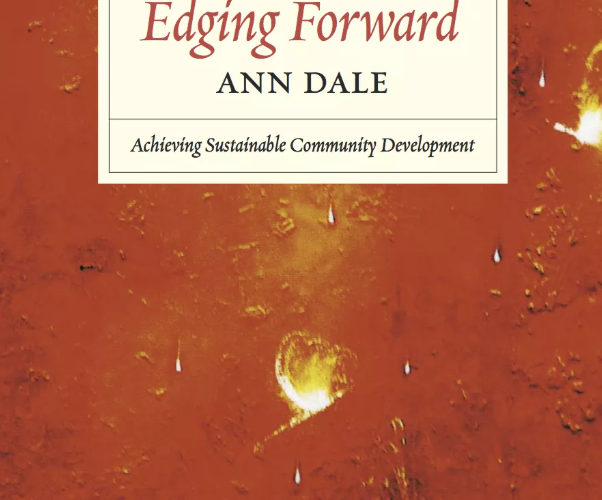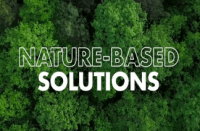Edging Forward is a hearty, well-informed plea to Canadians across the country to get off our collective butts and start affecting the change we know is needed. Ann Dale, a senior professor in the School of the Environment and Sustainability at Royal Roads University, provides a re-examination of what sustainability can and should look like for Canada – a country that, in many ways, still struggles to transition from a primary sector-based economy to a more diversified economic powerhouse.
Perhaps unsurprisingly, the book is far from a leisure read. And not having read Dale’s first book, I was unfamiliar with her personal history, which she weaves throughout the book. It took time to appreciate how deftly she integrates personal disclosures with the current hurdles facing environmental policy and cultural change across Canada.
Each paragraph is tightly packed with case studies, anecdotes and allusions, with Dale often leaving the reader to unpack each connection to build a fuller picture in their mind. As such, post-secondary students to “lifer Environmentalists,” as she calls them, would read Edging Forward in completely differently ways and find value all the same.
Depending on your familiarity with the subject, Edging Forward is either a primer or a pit-stop. There are so many layered ideas contained within its pages that, at times, its messaging comes off as rushed or hurried. Though I don’t agree with all Dale suggested in the book, I do appreciate that her hurried pace is purposeful. It’s the kind of book that appears meant to entice readers into taking action rather than bog them down in the details.
Depending on your familiarity with the subject, Edging Forward is either a primer or a pit-stop.
Yet the details are at-hand in the supporting material, reams of them in the endnotes and a corresponding website, all of which are organized in a masterful way. In these resources, the eco-conscience Canadian can find information and tools to assist them in however they are advocating for sustainable change in their community.
I was excited to dive into Edging Forward with its promise of weaving the “power of stories” into imperatives to drive sustainable development across the country. But while I appreciate that each chapter began with allusion, not all tied together as effectively as intended. Dale bravely shares her own personal story in what it took to overcome her own life’s hurdles; here I believe Dale is showcasing how a single human can become an agent of change despite grappling with despair. That acknowledging and acting on one’s agency in their own life is the same exercise (perhaps on a different scale) as it is to move an entire community to act on behalf of the environment.
Despite this, can Edging Forward shift environmental discussions and practice in Canada or around the world? Perhaps not. The book did not read to me as though Dale was trying to reinvent the wheel when it comes to sustainability in Canada; rather, given political climates at home and abroad that fail to grasp the magnitude of the global challenges we face as a species, I think she was simply trying to keep those wheels moving forward.
Which is noble enough in itself.
Reviewer Information
Sabrina M. Chiefari is an environmental educator. She uses story-telling, community action and spiritual thought to help all people understand how to act wisely towards our water, air and earth.













